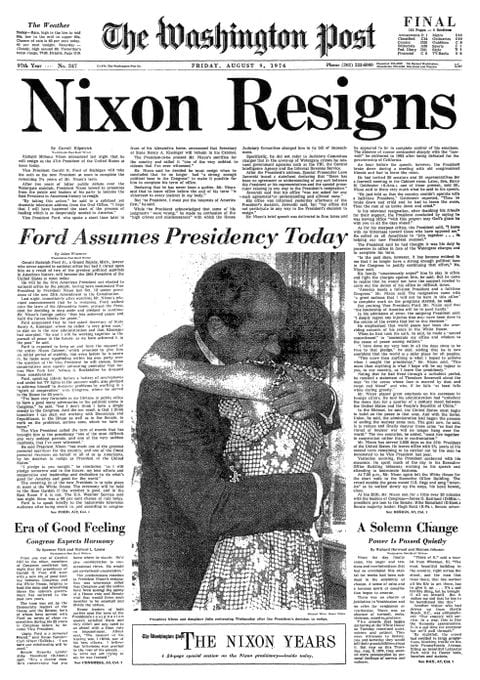The Rise and Fall of Investigative Journalism
In the early 1970s, Bob Woodward and Carl Bernstein of the Washington Post made history when they reported on the Watergate scandal orchestrated by the Richard Nixon administration. Over the next two years, they would investigate the circumstances of the scandal itself. In the beginning, they were among the extremely small minority of people that believed Nixon and his administration had anything to do with Watergate. In fact, Nixon was elected for a second term in the midst of the controversy. Despite the doubts of the rest of the country, Woodward and Bernstein continued the investigation and were instrumental in proving that the Nixon administration had, in fact, planned and executed the entire scheme.
While the Watergate scandal and Nixon’s administration ended, the people’s interest in the power of the press did not. Having realized the levels journalists could reach when it came to investigation, the country now wanted more of it. The popularity of investigative journalism drastically increased. Colleges began to introduce the topic as a major. Debates of candidates became more popular. Investigative journalism is now deeply ingrained in our lives, everywhere from the obvious newspaper to the more subtle wishes of the people to hear from candidates on social media. Since the Nixon Administration’s Watergate scandal, journalism has become tremendously important in our government and in our lives.
But now the question is raised: Are we doing enough? Traditional journalism is declining in the United States. In statistics provided by the Bureau of Labour Statistics, it is show that in January of 1990, approximately 455,000 people were employed by newspapers. Contrastingly, only around 183,200 were employed by newspapers in March of 2016. With this drop in employment comes a drop in local newspaper publishing. If people aren’t getting a newspaper dropped on their front step every morning, odds are good they’ll turn to the Internet for their news. While we might hope that they’ll go directly to real news sites, it is far more likely that people will turn to social media and the opinions of others to find their news. Are we letting go of the standard that Woodward and Bernstein held our country to? Or perhaps more disturbingly, have people simply stopped caring about the truth?
Featured Image: https://goo.gl/images/ydvXdD

Hi! My name is Moira McCudden and I’m a sophomore. This is my fourth year at the school and my first year on Wildezine. I like writing about politics...






